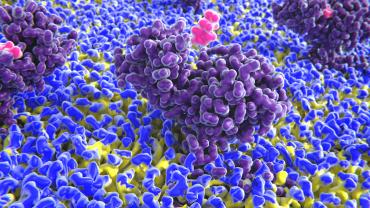
Histamine is a biogenic amine that has important functions in the body. The enzyme diamine oxidase (DAO) is primarily responsible for degrading histamine in the digestive tract to maintain histamine homeostasis. When a person lacks DAO, it is associated with adverse symptoms due to the disproportionate accumulation of plasma histamine. Similar to a lactase deficiency, resulting in lactose intolerance, a DAO deficiency may result in histamine intolerance (HIT).
It is estimated that 1% of the total population may be affected by HIT and 80% of the affected are middle-aged. Several factors are associated with a DAO deficiency, including genetic polymorphisms, certain medications, or inflammatory or gastrointestinal disorders. In these individuals, consumption of histamine-containing foods is associated with gastrointestinal (GI) upset, headaches, asthma, flushing, sneezing, skin rashes, hypotension, muscle aches, and more.
Unfortunately, many foods contain moderate-to-high levels of histamines, such as alcohol, fish, meat, fermented foods, and certain fruits and vegetables. Furthermore, histamine concentrations may vary based on manufacturing processes, hygiene of raw materials, microbial composition, and fermentation duration. The wide and variable distribution of histamine foods causes challenges in adhering to a strict histamine-free diet and may increase the risk of nutrient deficiencies. Recently, multiple human studies have proposed the use of DAO supplements to mitigate the challenges of a histamine-free diet and support overall histamine homeostasis.
A clinical study (n = 28) instructed patients with HIT to take DAO supplements before meals for up to three times per day for 4 weeks. During a follow-up period of 4 weeks, the same patients were instructed not to take the DAO supplements. The patients did not change their diet or medication throughout the 8-week study period. A 22-symptom score questionnaire highlighting GI, cardiovascular, respiratory, and skin complaints revealed that all complaints improved significantly when patients took the DAO supplements before meals. When the patients did not take the DAO supplements, the symptom sum score and severity increased again.
Along with GI complaints, headaches are one of the most recorded symptoms relating to HIT. One double-blind, randomized controlled trial (n = 100) offered DAO supplements or a placebo to patients with episodic migraines with HIT for 1 month. Compared to the placebo, patients receiving DAO supplements exhibited a significantly reduced duration of migraine attacks by 1.4 hours. Further studies have demonstrated the clinical relevance of DAO supplements in individuals who have HIT with headaches, gastrointestinal, and skin complaints, including those with urticaria. For example, a retrospective study (n = 14) administering DAO supplements to patients with HIT observed a reduction of at least one of the reported symptoms in 93% of patients.
Research suggests a histamine-free diet is helpful in reducing the symptoms of HIT. However, due to the prevalence of histamine-rich foods, compliance with the restricted diet may be low and can potentially result in suboptimal nutrient status. DAO supplements may be helpful in allowing more food choices in those who have HIT, potentially mitigating the undesirable effects.
By Danielle Moyer, MS, CNS, LDN